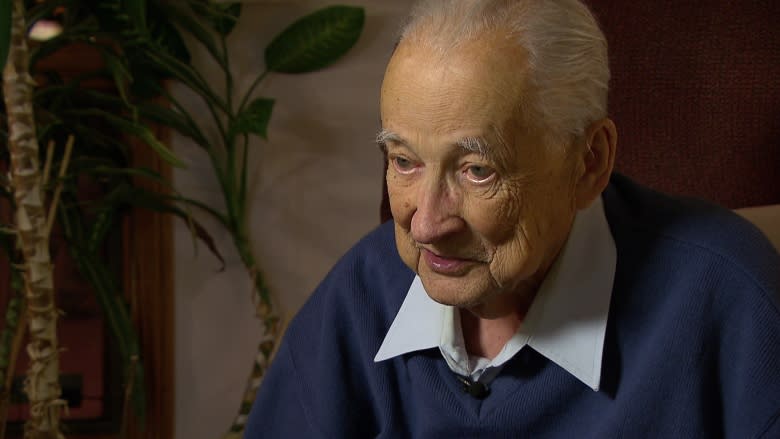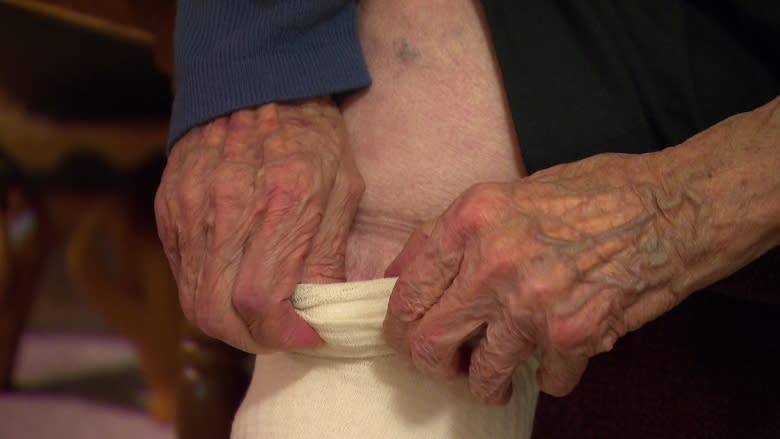Senior, 91, injured during test at Winnipeg hospital, family says
The quality of life for a 91-year-old Winnipeg man has declined in a matter of months due to the way hospital staff handled a procedure, his family says.
Bert Friesen, who has diabetes, said as little as two months ago, he was able to drive and go on trips around Winnipeg on his own.
But things have gone downhill since September. Friesen ended up in the emergency room at Concordia Hospital after his doctor became concerned about his blood pressure.
While at the hospital Friesen, was hooked up to a machine and received an electrocardiogram (EKG) test. Once the test finished, Friesen said the hospital attendant needed the machine to treat another patient. The staff member removed the cords from Friesen's skin in a hurry, which caused him to bleed, he said.
"Pulled them out, just like that — pretty fast," Friesen said, adding it was painful. "Having had EKGs before, that's a pain that just goes away in a short time, so I wasn't worried.
Infected wounds
"Sometime later, probably not very long, I just felt something on my leg," Friesen said. "My pants were down all the way. Pulled it up, and here was water and blood trickling right into my socks."
The wounds left from the procedure didn't immediately heal. In fact, they eventually became infected.
Two days later, Friesen returned to Concordia to get bandages changed but was turned away, he said. He ended up going to a walk-in clinic instead and having them change his bandages.
He has undergone two rounds of antibiotics to treat the infection and now needs home care to help with changing his bandages. Friesen said he can also no longer walk on his own.
'What happened in 1 split second'
Sharyn Jarzombek, Friesen's daughter, has moved in with her dad to help look after him.
Jarzombek said she fears her father's life will never be the same.
"I won't say the intent was deliberate, but I think the effect, what happened in one split second, has affected his entire life," she said.
The Winnipeg Regional Health Authority has apologized for Friesen's experience and said Concordia staff has also reached out to the family.
An investigation is being conducted to address concerns and determine whether anything in the process can be made safer in the future.
Friesen will never get the last two months of his life back, Jarzombek said, but she hopes hospital officials will take the case seriously and use it as a teaching experience to make sure it doesn't happen again.
Jarzombek added that she wants to warn people to make sure that when a family member is in hospital, someone is there to help and support them.



